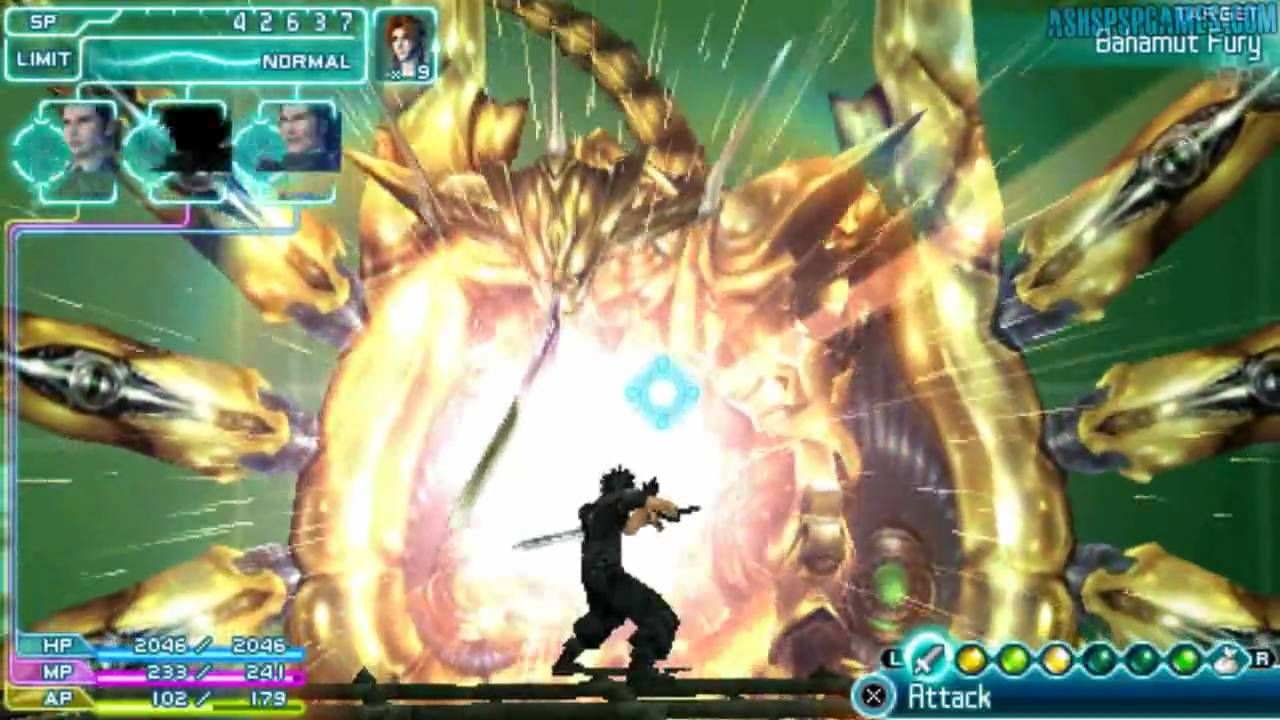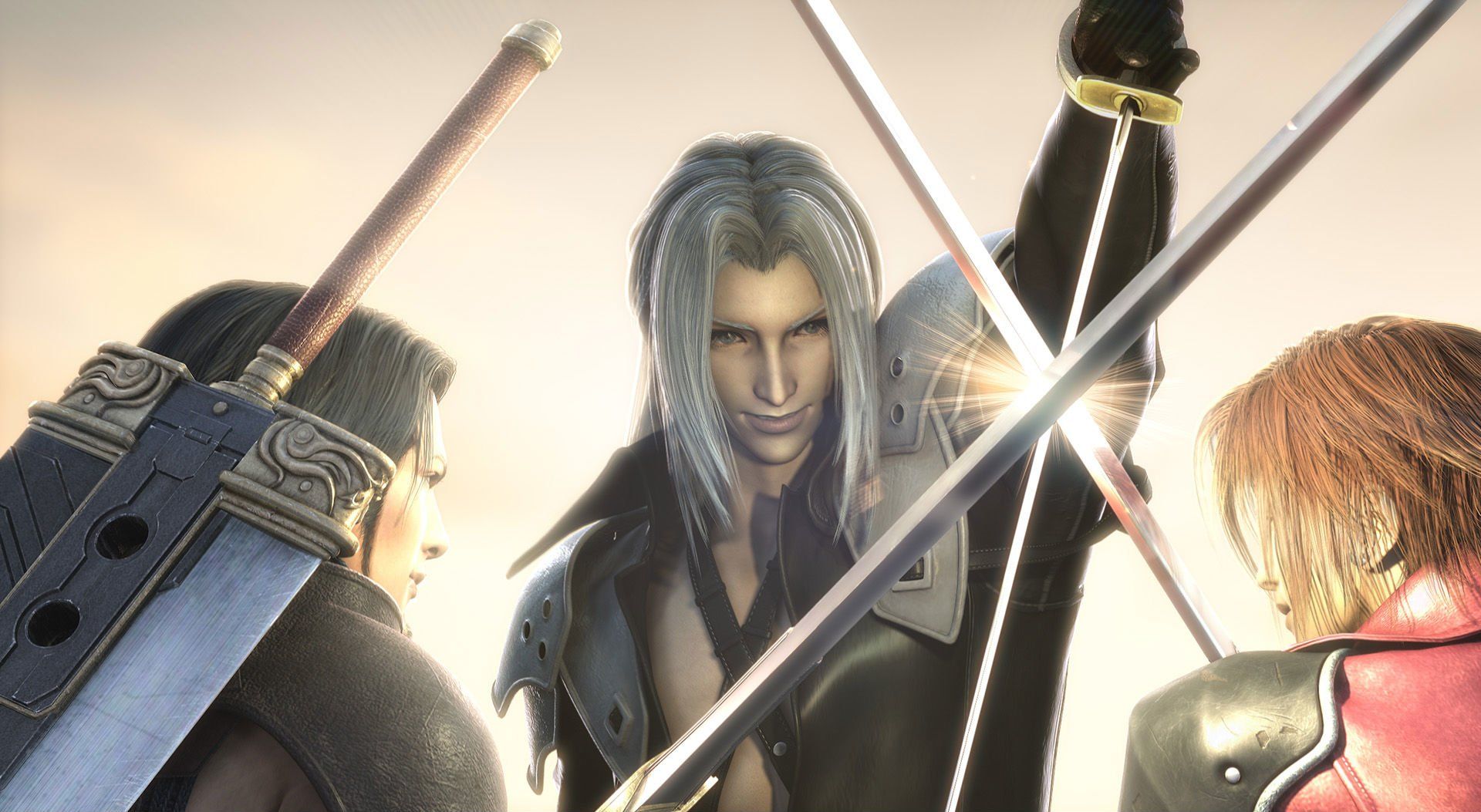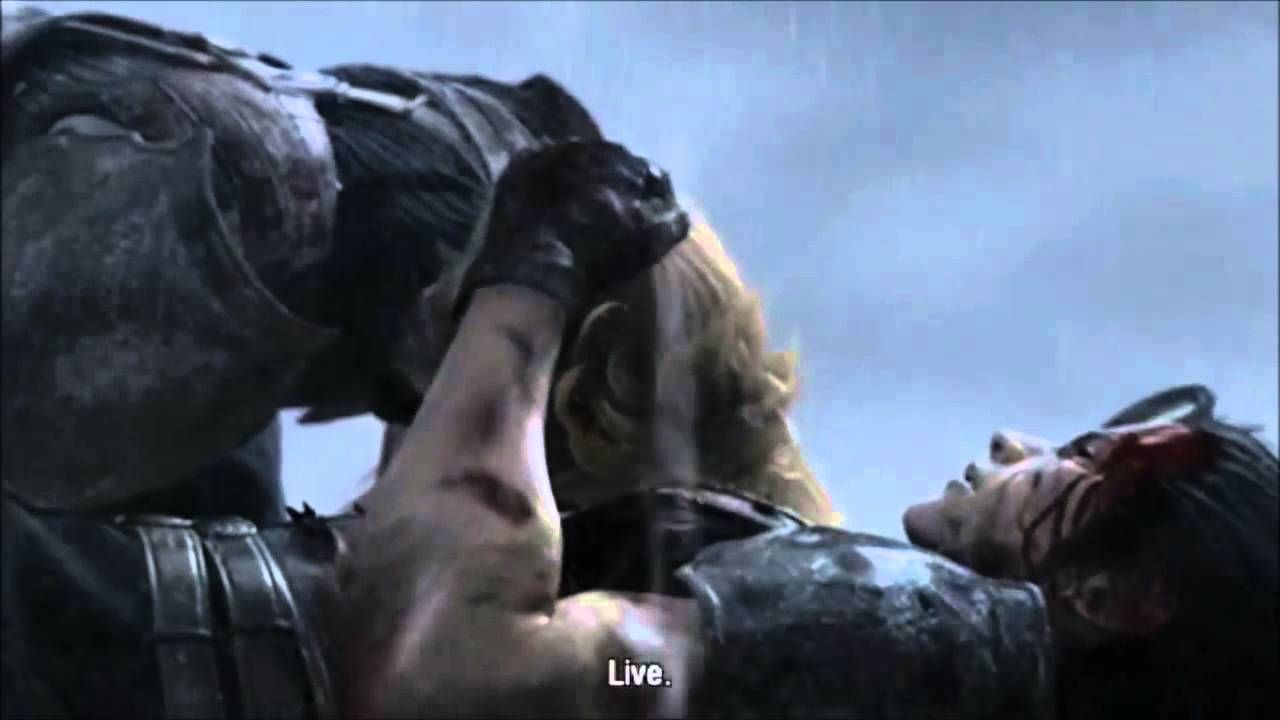Handheld gaming is more than a compromise of power and portability. Whether it's the ability to play anywhere, multitask or hold an entire console in your hands, it's a special experience consoles have never replicated. In a world where high resolutions and teraflops reign supreme, we take a look at a portable relic every month and reflect on what makes it memorable.
Final Fantasy VII was an extremely successful game and considered by many to be among the best entries in the series. As one would expect with a twenty year old game, the visuals and sound quality seem dated now, but the story holds up well as does the fans' fondness for this title. Fans have been clamoring for an HD remake for years, and before we got it (or more accurately, confirmation we will eventually get it), we ended up getting the Compilation of Final Fantasy VII, which were various spin-off games and movies that wanted to further explore the world of Final Fantasy VII. None of these were able to completely recapture the grandeur of its source material, but some of them were good in their own right. Crisis Core: Final Fantasy VII was a title that probably led to a significant increase in sales of the PSP.
As anyone who played Final Fantasy VII knows, (spoilers ahead) Cloud and Sephiroth have a bit of history together before Cloud was on a mission to prevent him from bringing cataclysmic disaster to the planet. And by Cloud we mean Zack Fair, the badass member Soldier 1st Class who Cloud based his entire backstory on since the little pointy headed shrimp never made the cut. Crisis Core: Final Fantasy VII is a prequel where we step into the boots of Zack and guide him through the events prior to the original game and make sure he survives until he reaches the point where he is supposed to die. Playing a game where from the beginning you know the end goal is the eventual defeat of your character is a bit odd but we at least know that Zack went down fighting.
Crisis Core: Final Fantasy VII is an action RPG, and unlike most other true Final Fantasy games, Zack is doing this adventure solo. Zack can run around freely to interact with people and explore and occasionally some random monsters will want to fight him. Combat is one of the stranger points using the Digital Mind Wave system which is a slot machine based feature. The player is free to control Zack in combat as one would expect, make him run around and attack his enemies and whenever the faces on the slot machine line up some sort of special attack or healing ability will happen. This feature operates on its own so combat feels a lot more random and luck based than pure strategy or skill. This feature was beneficial more often than it wasn't and watching an exasperated Zack call in an air strike for assistance was amusing the first couple times it happened but I felt more control in combat would improve this title.
As a prequel, the story of Crisis Core: Final Fantasy VII is one where we know the ending and some major events but a lot of the smaller details get filled in, though this is done more to help make this title stand on its own than contribute to a deeper understanding of its source material. Zack's main cohorts are Sephiroth, Angeal and Genesis, though those lovely experiments we learned about with those Jenova cells reared their ugly head here and kind of messed up the bromance they had going on. Major bro code foul, they all forgot bros before Jeno'ves (Editor's note: Please stop). Zack ends up having to do battle with these people after the Jenova cells corrupt them, and someone witnessing all these events is a young infantryman named Cloud Strife. This takes place before Cloud is strong and confident enough to prevent the destruction of the planet, this is where he is barely making a passing grade in his current rank and grows to idolize Zack who is able to remain strong when these events are causing all kinds of trouble. If I were to pick a life history to tell a group of eco terrorists I wanted to lead and impress a cute flower seller, I would go with Zack's background too.
Besides watching Cloud develop his admiration for Zack, we witness some noteworthy events that were referenced in Final Fantasy VII. Aerith never becomes a playable character, and she does manage to survive this game, but we do get to witness the budding relationship between her and Zack. Unfortunately, there is no Bioware style romancing minigame option for Aerith. Perhaps the remake can make that an easter egg when Aerith returns to the Lifestream and is reunited with Zack. While not wanting to downplay the significance of interpersonal relationships, the most significant event is Nibelheim. We saw this event before as a flashback, but there is something cool about being able to play this event as it happens, and the attention to keeping important details included is appreciated by any fan such as the young Tifa and seeing Cloud's first attempt at heroism against Sephiroth. The inclusion of this sequence is strictly there to stroke the nostalgia gland, but it is effective and let's be honest, most of the people playing this are doing so based on their fondness of the original.
The graphics of the cinematic cutscenes are very impressive, especially for a handheld console in 2007. The hardware capabilities of the Vita and 3DS may have spoiled us over the past several years but for its time these were top notch, looking comparable to the quality of the CGI movie Final Fantasy VII Advent Children. The music is equally as impressive as the visuals. The continue milking the nostalgia factor, there are a few redone tracks from Final Fantasy VII that sound fantastic, including the Bombing Mission, Aerith's Theme and One Winged Angel, but there are also some outstanding new tracks such as The Water's Surface and The Price of Freedom., and let's not forget the musical theme that appears throughout various portions of the game.
Crisis Core: Final Fantasy VII was nowhere near as impressive in 2007 as Final Fantasy VII was in 1997, but it didn't have to be. A challenge with prequels, especially ones of this nature, is the player knows the final outcome so the writers have to strive to make the journey to that endpoint captivating. They do succeed for the most part, though playing on the fans' sense of sentimentality does make the job a lot easier. The random nature of the DMW mechanic in battle is strange and I can't say I'm crazy about it and there are a couple cringe worthy moments of dialog, but overall this is a strong PSP title. The gameplay is a departure from Final Fantasy VII, but does stay true to the heavy use of cinematics in later titles. Like its predecessor, the story is the main highlight and the story is self contained enough where people who have never played Final Fantasy VII could still enjoy it. Even knowing how Zack's story ends, the journey to that point is handled with such care it still has an emotional impact when Cloud bids his friend farewell. To really get the full experience and emotional impact, however, it's highly recommended to play Final Fantasy VII since Crisis Core is driven by nostalgia for that title, and it is just highly recommended to have played Final Fantasy VII at least once in general.
Get more Pocket Power. Click here to view every Pocket Power so far and prepare for a pocket-sized stroll down memory lane.




